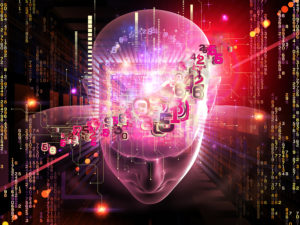
Your life is about to change dramatically, but your wisdom can shape its direction.
Ever wonder how Google maps instantly adjust your travel time in different traffic conditions; or how Facebook shows you hotel ads no sooner than you have searched online for a holiday destination; or how Siri recognises your voice? AI is present in our lives in a bigger way than we realise; and it’s growing rapidly.
Machine learning will change the future
All these developments seem benign for the most part, even helpful in many ways. However, machine learning, a recent breakthrough in the field of AI, has the potential to dramatically alter the scope and potential of AI in the foreseeable future. For better and for worse.
The first stage of AI is to program something to execute certain tasks based on predetermined commands. For example, a robot in a car factory. At the next level, a machine, armed with a framework of rules, is trained to work through large amounts of information to make the most optimal recommendation. For example, a supercomputer that checks through innumerable options and selects the best chess move.
Machine learning is changing all that. Advanced machine learning relies on algorithms that have the ability to self-learn by observing patterns from humungous amount of random data and making informed decisions by themselves. It’s equivalent to a computer learning to play chess by itself. Learning from the quality of its decisions and outcomes, the machine progressively gets better at the task. Facial and voice recognition and driverless-cars increasingly rely on this.
The real game changer
As AI machines or robots continue to improve on their decision-making and build stronger cognitive ability, it is envisageable that one day they would be more intelligent than humans. The AI world refers to this milestone as Singularity. This would be the tipping point of an exponential rise in the power of self-learning machines.
While there are varying views on how soon Singularity would be possible, Ray Kurzweil, a highly regarded futurist and director of engineering at Google, predicts it would happen by 2045. Past this threshold, humans may not be able to control the future development of AI, the AI-powered machines would.
The big issue
On the positive side, with their immense cognitive ability, the machines would be able to do several tasks better, faster and cheaper. However, here’s the rub.
For a majority of decisions, that require the machines to learn from existing data and patterns, they would be as biased as the data they study. This can be an issue when it involves human values, perceptions and preferences. If there’s a racial or a gender bias in comments online, the machines learning from this data are going to be biased. If people are judgmental, envious or aggressive in their interactions, machines would be so too.
In essence, as we approach the singularity state, the robots would be an exaggerated, and far more powerful, replica of the current humanity. Our goodness would get amplified, so would the evil.
Needed: Real wisdom
To my mind, the premium and urgency for a self-aware and wiser society just went up manifold. It’s akin to how we need to be role models for our children to build their character. In this case, we are talking about bringing up super intelligent machines as children. Unless we demonstrate the right values and live a purposeful life, the machines of the future would not.
If humans are more caring, courageous, loving, authentic, mindful and compassionate, that’s what the machines learning human behavior would observe. If fear, anger, hate, greed, power or manipulation continue to guide us, that’s what would define the robots too. It is up to us to make the wiser choices – if only we are intentional about it and commit to bringing our best self to the world every day. That would be our biggest gift to the future generations. It’s both our privilege and our responsibility!











 Personal Mastery and the Journey Within
Personal Mastery and the Journey Within Loving What Is – The Secret Ingredient For Lasting Happiness
Loving What Is – The Secret Ingredient For Lasting Happiness Why NGO Leaders Are Not Necessarily Happy
Why NGO Leaders Are Not Necessarily Happy Insightful Lessons From Our Body’s Innate Wisdom
Insightful Lessons From Our Body’s Innate Wisdom Clarity Exists: Not in Thoughts, But In-between
Clarity Exists: Not in Thoughts, But In-between
Fantastic as always! I was surprised to see the subject. I was like I didn’t know you are an expert on AI. The Aha moment came towards the end – how human behaviours affect the that of Robots! Absolute enjoy to read! Thanks
Thanks Alan, glad you had the patience to get to the end 🙂
Dear Rajiv, actions that require judgement and need to have minimal bias, would still fall under the human realm. While Man’s efforts to become God (cloning, singularity, space exploration) still have to be taken with a heavy dose of salt, the ultimate question. “Does man need to become God”. Is that a frontier worth pursuing. And if so are the Good-Bad odds in favour of the attempt?
Somewhere, Science is viewing Religion as an opposite party while the reality is that Science-Religion mostly complement & re-affirm each other.
Your article is very relevant and pertinent – do put in more flavour on the non-science, society-impact portions.
Many thanks for your comments Kalyan. I reckon that the genie is out of the bottle so it’s unlikely that future growth of self-learning machines would be slowed in any way. I feel the key issue is that in the search to become more powerful themselves, humans are likely to create machines that would be far more powerful (and learn much faster) than humans, clearly dwarfing the role of humans on this planet. Unless…we can sort out our limiting approach to life and embrace the journey of self-awareness and wisdom…so whatever society gets created (even if ruled by machines) is caring, compassionate, collaborative and respectful. Maybe wishful thinking, but we have to try!
Separately, I agree with your observation of the perceived disconnect between science and spirituality even though they have more to reaffirm each other than is often apparent.
A very good and topical read. as always you have identified the right issues and the narrative is so relevant and so though provoking.
Nice article , I feel you have linked it very well to today’s relevant and popular technologies and their ramifications.
A very thought-provoking article on the importance of good vs bad in the age of AI and machine learning (ML). We, technologists, are gung-ho on how AI will reshape experiences and elevate humans to more complex tasks than the mundane. The one important takeaway for me was on how goodness and evil will be amplified with ML and it is for us humans, to provide the right ‘dataset’ of empathy and humanity to the new learning machines.
Hi Rajiv, This post very nicely covers a lot of the issues related to AI that I have wondered about. Thanks for sharing.
“Our goodness would get amplified, so would the evil.” However, since by definition the machines learn from the quality of their decisions and the outcome, won’t these machines (eventually) decide and act not based only on what they have learnt from humans but also from their own experience of the outcomes? Discard lessons that lead to poor outcomes and retain those that have better results? And so can we not hope actually hope for a better world?
Great point Vikas. That’s a possibility. However, it’s hard to predict what the machines would see as their purpose. It’s equally possible, they see it as dominating others or gaining power. They could also determine that humans have no productive role in their world and may wish to eliminate them. Depends on what they learn and find valuable – efficiency or compassion. (A country does not ask its weaker or less productive citizens to leave the country, but organizations do).
Rajiv, I enjoyed reading your blog. Your conclusions regarding human values and behaviours is true today so much more than ever. It’s this human complexity and unpredictable variability that I think machines will not be able to emulate ! And so all the more important to maintain and drive up the goodness factor and the need for counsellors, therapists and life coaches (😊) psychologists will never be replaced by machines !